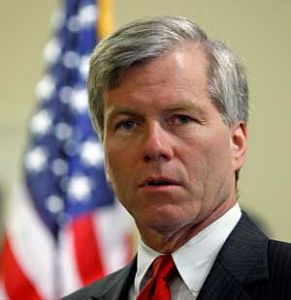Former Virginia Governor Robert McDonnell has escaped the law, but it may only be for the time being. The 8-0 result at the Supreme Court of McDonnell v. United States did nullify the prior guilty verdict he had received and clarifies the legal gray area of political corruption of what constitutes an “official act,” but it does not prevent the lower court for retrying McDonnell on a narrower interpretation of the law.
McDonnell’s case revolved around his acceptance of $175,000 in loans, gifts and other benefits from Jonnie Williams. Williams, a Virginia businessman, had interest in Virginia’s public university studies of a drug, Anatabloc, Williams needed to produce a nutritional supplement.
The unanimous Supreme Court Decision syllabus states, “to convict the McDonnells, the Government was required to show that Governor McDonnell committed (or agreed to commit) an ‘official act’ in exchange for the loans and gifts.” An “official act” is defined as actions which directly utilize the public official’s position of power and trust in order to cause an action on a controversy. But the government’s vague, broader application of “official act” gave the prosecutors far too much discretion in the trial.
The United States Government argued McDonnell committed at least 5 “official acts”; including “arranging meetings” for Williams and other Virginia officials to discuss the drug, “hosting” events for Williams company at the Governor’s Mansion, and “contacting other government officials” concerning the research studies.
The actions of “arranging”, “hosting”, and “contacting” all made McDonnell appear guilty, however; McDonnell claims these are average duties of a governor and allow him to remain in touch with his constituents.
The Supreme Court agreed.
By having such a broad interpretation of an “official act,” most actions public officials engage in — like hosting a fundraiser or introducing business leaders — might be considered corrupt. Giving prosecutors such complete discretion as to not only when to try officials, but also what the statute means, might sound a bit powerful for a prosecutor.
Instead, the Supreme Court decision outlines two requirements; first, a “formal exercise of governmental power, such as a lawsuit, hearing or administrative determination… a typical meeting, call, or event does not qualify.” Next, there must be a pending action, explained as “the kind of thing that can be put on an agenda, tracked for progress, and then checked off as complete.”
The decision shows clear disapproval for what McDonnell did. However, despite them being unpopular and with clear self-interest, “merely setting up a meeting, hosting an event, or calling another official” does not qualify as an official act and importantly, is not a crime.
The Supreme Court’s obvious discontent for McDonnell is clearly displayed, Chief Justice Roberts continuously writes that the jury was not necessarily wrong to convict McDonnell but convicted him on the wrong grounds, due to the lower courts’ lack of instruction. To assist, the Supreme Court does provide an opportunity for resolution.
The 4th Circuit Appeals Court now has the chance to revisit the case and determine if there is enough evidence under the Supreme Court’s narrower interpretation of what constitutes an “official act,” and determine if McDonnell actually committed any crime. Roberts writes “if the court below determines that there is sufficient evidence for a jury to convict Governor McDonnell of committing or agreeing to commit an ‘official act,’ his case may be set for a new trial.”
For McDonnell, his case is far from over. With the lower courts continued interest and his wife’s continuing legal battles over her assistance, McDonnell is far from free of prosecution. Chief Justice Roberts concludes with the reminder that “there is no doubt that this case is distasteful; it may be worse than that,” but the lower courts must still find an “official act” by McDonnell in exchange for gifts to make the charge actually stick. In the meantime, McDonnell’s reputation as once a Republican Party rising star is diminished. We’ll know soon if his name is fully cleared.
Natalia Castro is a contributing editor at Americans for Limited Government.







